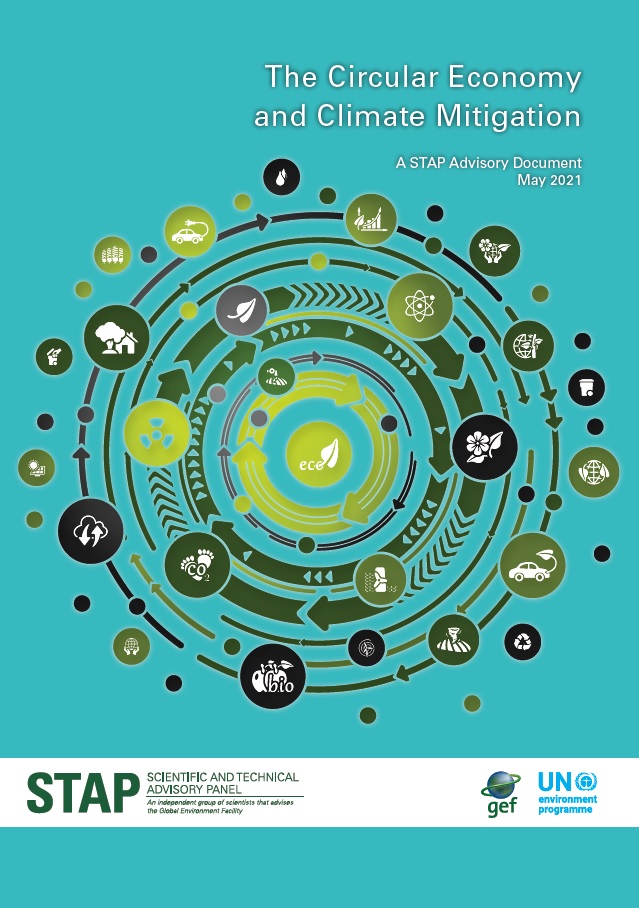A significant aspect of today's climate change degradation is linked to materials extraction, processing, use, and disposal. Hence, the circular economy offers an opportunity to tackle climate change and deliver other environmental and socioeconomic benefits by ensuring that focusing on maintaining resources in use for as long as possible, extracting the maximum value while in use, and recovering and recycling products and usable materials at the end of their serviceable life.
This STAP report examines how the circular economy can support more ambitious climate action and deliver other global environment benefits pertinent to the GEF. It presents 14 circular climate change interventions in sectors of interest to the GEF, including agriculture, food, plastics, textile, electronics, transportation, construction, and infrastructure, with case studies illustrating successful implementation.
This report builds on previous STAP advice on implementing circular economy approaches in plastics and food systems and a commissioned technical background paper. It presents recommendations to the GEF on how to implement the 14 interventions. These include incorporating circular principles into GEF-8 programming strategy; promoting measures, policies, and economic incentives to facilitate easier adoption; and partnering with others organizations to facilitate innovation, attract finance and promote more widespread adoption and replication.





